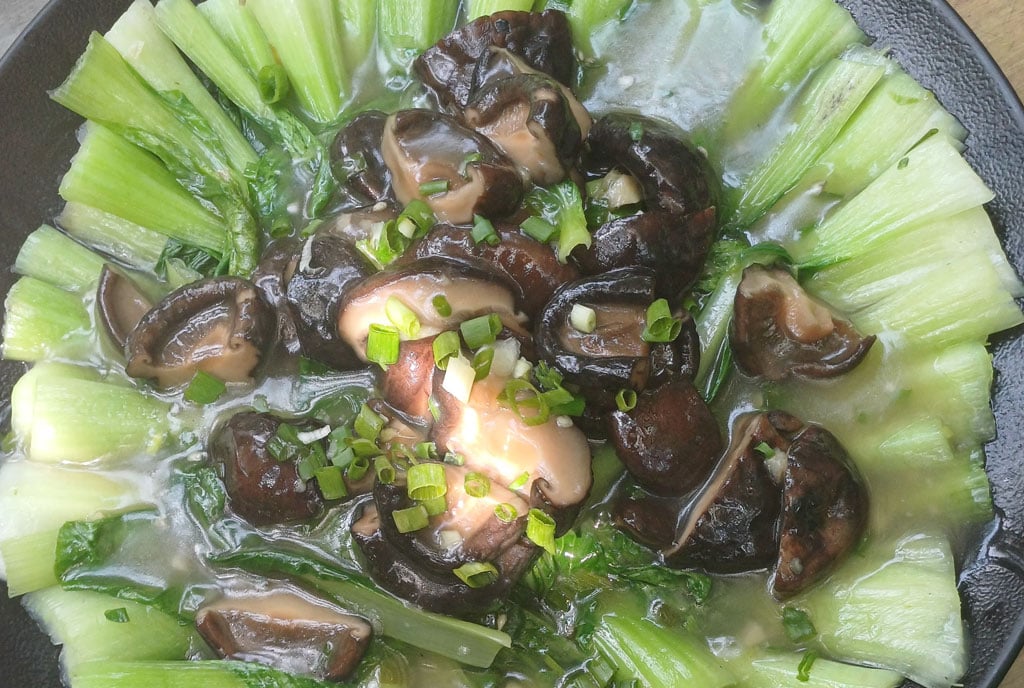
A dish of Yaji grilled shrimps in Salsa at the 2024 CANEX-live gastronomical showcase in Algiers, Algeria. PHOTO/COURTESY
Why are local cuisines from Africa conspicuously absent on the menus of the eateries of most global cities in the Americas, Europe, Asia and Australasia? This is a question that dominated the narrative during the CANEX Gastronomy and Culinary Arts Programme. The programme was recently held under the auspices of the Creative Africa Nexus (CANEX) Weekend (WKND) 2024 in Algiers, Algeria.
Leading figures from the worlds of visual art, music, cinema, film, fashion, and gastronomy attended the CANEX programme that was set up by Afreximbank. This was in a bid to facilitate the development and growth of creative and cultural industries (CCIs) in Africa and the African diaspora.
“While you’re likely to find a constellation of Indian, Arabic and Chinese restaurants dotting the skyline in many of these capitals, you'll rarely find African restaurants,” Moses Weunda, a Kenyan government official, said, adding, “I, therefore, try to make do with what’s closest to my African menu, (typically Arab or Indian) often going with rice, fish and others, though obviously missing the African touch in their taste courtesy of being prepared in a different style.”
Crème de la crème
Some of the renowned and celebrated chefs from Africa and the Caribbean, including chefs Stone, Sherazade, Charlie Koffi, Siba Mtongana, Rabah Ourrad, Natasha De Bourg, Yasmina Sellam Benlemalem and Ms Ndidi Nwuneli, took part in the programme. They facilitated live demonstrations, masterclasses, and panel discussions. Mtongana, a critically acclaimed chef from South Africa, said the culinary delights of Africa are “unappreciated”.
Mtongana, who is also a multi-award-winning chef, restaurateur, food expert, entrepreneur and author, decried highly populated places within Africa that choose not to celebrate the continent’s rich culinary skills.
He, for instance, cited ugali, a common thick maize meal made from white maize flour cooked in boiling water or milk. The dish is widely eaten across Africa where it takes on different local names, including posho, papa, nsima, pap, sadza, isitshwala, akume, amawe, ewokpe and akple.
“We should work locally in order to grow our cuisines within Africa. Our cooking is still done at home. We should push our professional chefs to explore African home cooking. We should eventually move away from homes to international restaurants,” Ourrad said.
“Our cuisine has not yet been codified to international standards. We need to create credible restaurants at home and then export the culinary. We need to create a base here at home first,” the Algerian chef added.
Next generation
Mtongana pointed out that the culinary school syllabus in South Africa does not provide for African culinary styles but rather students are only taught about European styles.
“We need to educate and sensitise Africans to treasure our African ingredients for food. We should change their mindset to not only look to the West,” Stone from Nigeria said.
“The younger generation has a negative impression of being a chef. We need to educate them that you can be successful as a chef. This is now changing, including among the parents. You can study to become a chef and grow in the industry,” Stone added.
Rabah said it is important to impress upon youth not only the gastronomical delights of Africa but also the role of a chef.
“I spent 20 years in Europe learning my craft. African governments need to entice African chefs abroad to come back home and invest in restaurants on the continent. We need to transfer the knowledge to the young chefs, and this is very important if we are to grow the industry,” Rabah said.
Putting on a show
During their live gastronomical showcase, Stone cooked an appetising Suya dish made up of yayi spice, salsa, prawns and beef. On his part, Charlie Koffi from Ivory Coast prepared Fondant de sounon; fonis avocado.
“As we celebrate the progress, we have made in the one year of the CANEX Gastronomy and Culinary Arts Programme, I would like to highlight that African food remains underrepresented in the global culinary landscape,” Chinelo Oramah, matron of Afreximbank Spouse Network (ASNET), said.
“Despite the rich diversity of our cuisines, only about one percent of fine dining restaurants worldwide feature African culinary offerings. This is a stark contrast to the fact that the global fine dining market is projected to reach $250 billion by 2027,” she added.
The ASNET Matron also said it is important to be alive to the economics of maintaining a fine dining restaurant, with initial investment estimates, depending on location and concept, ranging from $500,000 (Shs1.8b) to more than $1 million (Shs3.7b).
“Potential owners often face the challenge of securing financing or finding suitable locations. It is therefore clear, once again, that African integration to the global fine dining market is constrained by lack of access to capital,” Chinelo opined.
He added: “To tackle this, last year, we explored the concept of franchising as a means to propagate our food culture. A franchise strategy supported by Afreximbank could be transformational, allowing us to establish fine dining restaurants globally.”
Opportunities galore
Chinelo also stressed the need to seize upon 70 percent of consumers who continue to “express a desire to try new and diverse cuisines” by introducing African and Caribbean cuisines to them.
“Moreover, research indicates that African cuisine can enhance food tourism, which was valued at approximately $500 billion globally in 2019, and is projected to grow rapidly in the years ahead,” she said, adding, “To implement this strategy, it is crucial to garner the support of our African and Caribbean culinary giants. Collaboration is key in developing a holistic, feasible, and sustainable franchise strategy that will enable us to position African fine dining restaurants worldwide.”
The ASNET Matron is confident that “we can significantly increase the representation of African flavours in the global food ecosystem”.
She noted thus: “There are some success stories we can learn from, including The Bahamas Brave Restaurant in many US Southern States and Nandos from South Africa which has expanded globally through franchising.”
She added: “Apart from franchising, we also call on Afreximbank to mobilise its partner banks to create a venture capital fund to be used in supporting proven chefs to open restaurants in major cities around the world. A major taste of Africa food media campaign can also be launched to support Africa-themed restaurants collectively.”
Chinelo also called upon the chefs and other stakeholders to contribute to the crafting of a fine African dining franchise strategy that will take the world by storm. The stakeholders, she added, should create a movement that celebrates Africa’s culinary treasures while fostering economic growth and innovation for our communities.
Afreximbank launched the African Gastronomy and Culinary Arts Programme under the CANEX programme during the third Intra-African Trade Fair (IATF2023), held in November in Cairo, Egypt.
The programme will help to refocus continental efforts towards local food production to ensure food security, reduce high food costs and imports and minimise the impact of external shocks on Africa’s food supply chain.
The programme avails an opportunity for the promotion of African cuisine to develop trade and local food value chain through the promotion of local foods. It intends to do this by highlighting their superior health benefits to local and regional communities and supporting local restauranteurs and entrepreneurs to upgrade the dining experience through skills development and capacity building.
Speaking at the opening ceremony, the president and chairman of the board of directors of Afreximbank, Prof Benedict Oramah, announced that Afreximbank will increase its funding to the CANEX programme from $1b to $2b (Shs7.3b) for the next three years.









